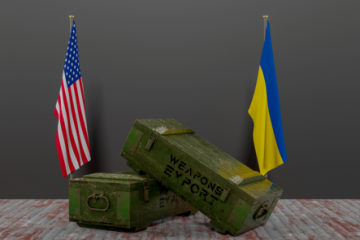
The Need to Institutionalise US Support for Ukraine in the Face of Electoral Uncertainty
As storm clouds gather on the horizon, the future of US support for Ukraine remains uncertain. Despite overall high levels of support among the American public, questions over how much money to commit to Ukraine and the looming uncertainty of the next US election cast doubt on the extent to which the US–the largest overall aid donor to Ukraine–can continue to provide support. Growing concerns about accountability and transparency raise further doubts about continuing such substantial support, especially with no end to the conflict in sight. Ultimately, in order to maintain the current level of US support for Ukraine, aid flows need to become institutionalised and predictable. This would allow for more strategic long-term planning on behalf of the US …
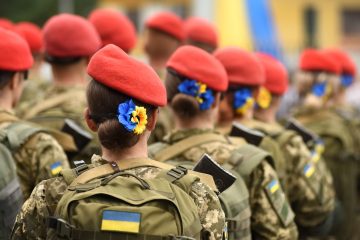
Russia’s War in Ukraine and Women’s Agency
Despite the unabated destruction and devastation caused by Russia’s full-scale invasion of Ukraine, the war also opened new doors for development and a leap in women’s agency. Ukraine is fundamentally rethinking gender roles, expanding the opportunities of its citizens, and serving as a model for other countries. The Armed Forces of Ukraine have become the first place where women’s voices have been amplified. Ukraine has allowed women to participate in military operations to guarantee national security and defence, as they repel and deter armed aggression by Russia. Currently, 40,000 women serve in the Armed Forces, including those in combat roles. Furthermore, 8,000 women hold officer positions, and 5,000 serve on the front lines. In the near future, a separate combat …
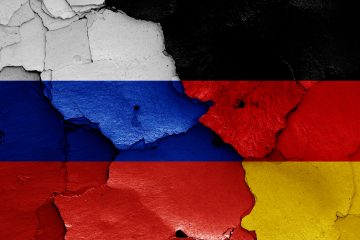
Review of Sehenden Auges: Mut zum Strategischen Kurswechsel (With Eyes Wide Open: The Courage for a Strategic Course Change) by Dr. Stefanie Babst
Just over a year after Russia’s invasion of Ukraine in February 2022, Dr. Stefanie Babst, who has held several senior positions at NATO, including heading its Strategic Foresight Team from 2012 to 2020, has published her latest book, Sehenden Auges: Mut zum Strategischen Kurswechsel (With Eyes Wide Open: The Courage for a Strategic Course Change). The book is an important call for critical reflection and course correction among NATO partners and a plea for the West to continue to support Ukraine, not least in its own interests. The first part of the book contextualises Russia’s war on Ukraine. The author explains Putin’s rise to power, the workings of his power apparatus, and Moscow’s strategic objectives. Babst provides the reader with …
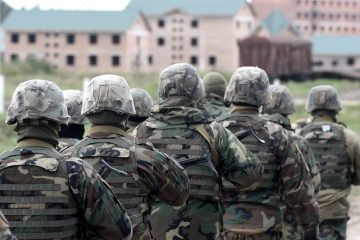
A New Battleground: Russia’s “Grey Zone” Warfare in the Sahel
As Russia’s invasion of Ukraine enters its second year, the Wagner Group has been expanding its Kremlin-backed footprint across the globe. In particular, the mercenary network has been deploying forces in Africa’s Sahel region, revealing how Moscow is strategically blurring the line between “anti-terror” operations, security-for-resources tradeoffs, and covert political influence. In recent months, U.S. officials have accused Wagner of exploiting resources in the Central African Republic (CAR), Mali, Sudan, and beyond in an effort to fund Putin’s “war machine” in Ukraine — a charge Moscow dismissed as “anti-Russian rage”. Beyond the Ukraine crisis, however, the group’s activities and atrocities are painting a dire picture of Russia’s long-term strategy to destabilise Western relationships and gain a foothold in the African …
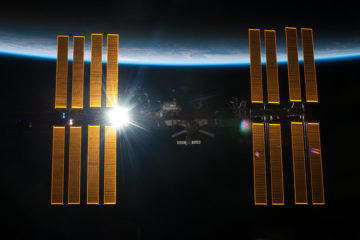
OxPol Blogcast Episode 6: The Space Debris Problem
Welcome to the OxPol Blogcast, a podcast where we will be sharing research, analysis, and experiences from members of the University of Oxford’s Department of Politics and International Relations. On each, episode we will talk to a guest about a piece they’ve written for the OxPol Blog. Then, we’ll discuss their larger research agenda, their insights on conducting political science, and their time at Oxford. On this episode of the OxPol BlogCast, host Chase Harrison talks to MPhil graduate Samantha Potter about the space debris problem, the laws and procedures that govern outer space, and what it looks like to do space research at Oxford. Read the original blog post here: blog.politics.ox.ac.uk/what-chinas-f…bris-problem/ This work is the author’s own and does not …
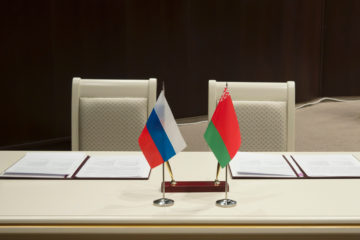
Kidnapping of Roman Protasevich will force pariah Belarus more firmly into Russia’s orbit
The taking of journalist Roman Protasevich from a commercial airline flight has further estranged Belarus from an outraged west and will force the country deeper under the influence of an increasingly powerful Russian Federation. Protasevich and his girlfriend Sofia Sapega were detained at Minsk airport after a Ryanair flight from Athens to Vilnius, Lithuania was forced to make an emergency landing in the Belarusian capital on May 23. The incident sparked widespread backlash from the west, leading the UK and the EU to ban Belarusian aircrafts from entering the their airspace and the latter announcing preparations for another round of sanctions. The incident was received very differently in Russia. Moscow expressed support for Lukashenko’s decision – albeit relatively mutedly – …

Recovering from SolarWinds: Three Cybersecurity Priorities for the Biden Administration
Since January 20th, the Biden administration has been focused above all else on tackling Covid-19 and passing a landmark economic relief bill. This is unsurprising. In the context of a global pandemic, with an urgent vaccine rollout taking place, the US government must prioritise tackling Covid-19 and its economic consequences. However, President Biden has a raft of additional problems waiting at his doorstep. In particular, the US faces a two-pronged cybersecurity crisis: the impact of a vast cybersecurity breach known as the SolarWinds attack that was likely perpetrated by Russian intelligence, coupled with the fallout from Trump’s ‘legacy of cyber confusion’. This leaves Biden with three tasks. First, he must deal with the immediate consequences of SolarWinds: identifying what data has been compromised and doing everything possible to patch exploited systems. Next, he must hold Russia accountable …
Coronavirus and the Crisis of State Identity in Belarus
Even after achieving independence, Belarus is still known as the most ‘Russianised’ of the post-Soviet countries. Its unique retention of Soviet structures even after the breakdown of the USSR demonstrates the lack of cohesive state identity in the country. This has allowed Alexander Lukashenko, the country’s first and only president to date, to concentrate more and more power in his own hands. This article argues that Belarus’ crisis of state identity has enabled Lukashenko’s populist and, subsequently, authoritarian nature. Further, the lack of state identity has allowed him to neglect the severity of the Coronavirus pandemic. Belarus’s independence in the post-Cold War era was not a result of a long struggle, which hampered the formation of national identity. In 1991, …









